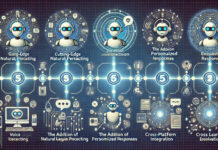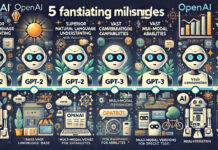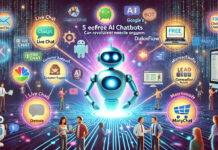Artificial Intelligence (AI) is revolutionizing various industries, and the music industry is no exception. From creating original compositions to curating personalized playlists, AI is transforming how music is produced, distributed, and consumed. This article delves into the profound impact of AI on the music industry, exploring how it helps create hits and enhances the curation process.
The Role of AI in Music Creation
AI’s involvement in music creation has been groundbreaking. AI-powered tools and algorithms can compose music, generate lyrics, and even mimic the styles of famous artists. Here are some key areas where AI is making a difference:
Composition and Songwriting
AI algorithms can analyze vast amounts of musical data to identify patterns and generate new compositions. For instance, AI can create melodies, harmonies, and rhythms that are both innovative and appealing. Platforms like Amper Music and AIVA (Artificial Intelligence Virtual Artist) allow users to create original music by inputting their preferences and letting AI do the rest. These tools are particularly useful for artists and producers looking to experiment with new sounds or generate background scores for media projects.
Lyric Generation
AI can also assist in songwriting by generating lyrics. Using natural language processing (NLP), AI models can analyze existing songs and produce lyrics that fit a particular theme, mood, or genre. For example, OpenAI’s GPT-3 has been used to write lyrics that emulate the style of various artists, offering a starting point for human songwriters to build upon.
Music Production
In music production, AI can enhance and streamline the process. AI-driven plugins can assist with mixing and mastering tracks, ensuring high-quality sound with minimal effort. These tools analyze the audio and make adjustments to equalization, compression, and other parameters to achieve a polished final product. This technology democratizes music production, making it accessible to artists who may not have extensive technical knowledge or resources.
AI in Music Curation
Beyond creation, AI is revolutionizing how music is curated and recommended to listeners. Streaming services like Spotify and Apple Music rely heavily on AI to deliver personalized experiences.
Personalized Playlists
AI algorithms analyze users’ listening habits, preferences, and behaviors to curate personalized playlists. These playlists are tailored to individual tastes, ensuring that users discover new music they are likely to enjoy. For instance, Spotify’s “Discover Weekly” and “Release Radar” playlists use AI to analyze user data and suggest tracks that align with their musical preferences.
Mood and Context-Based Recommendations
AI can also curate music based on the listener’s mood, activity, or context. For example, an AI-driven app might suggest energetic tracks for a workout session or relaxing tunes for a quiet evening. These recommendations enhance the user experience by providing the right music for every moment.
Enhanced Discovery
AI helps listeners discover new artists and genres that they might not have encountered otherwise. By analyzing patterns and trends in listening data, AI can identify emerging artists and recommend them to users who have shown interest in similar music. This feature supports lesser-known artists by giving them a platform to reach a broader audience.
Benefits of AI in the Music Industry
The integration of AI into the music industry offers numerous benefits for artists, producers, and listeners alike.
Creativity and Innovation
AI expands the creative possibilities for musicians by offering new tools and methods for composition and production. Artists can experiment with different styles and sounds, leading to innovative and unique music.
Efficiency and Accessibility
AI-driven tools streamline the music creation process, making it more efficient and accessible. Artists with limited resources can produce high-quality music without needing extensive technical knowledge or expensive equipment.
Personalized Experiences
For listeners, AI provides personalized and engaging music experiences. The ability to discover new music tailored to individual tastes enhances the overall enjoyment and satisfaction of music consumption.
Challenges and Ethical Considerations
While AI offers exciting opportunities, it also presents challenges and ethical considerations.
Authenticity and Originality
There is ongoing debate about the authenticity and originality of AI-generated music. Some argue that music created by algorithms lacks the emotional depth and personal touch of human compositions.
Job Displacement
The increasing use of AI in music production and curation is raising significant concerns about job displacement within the industry. As AI-driven tools become more sophisticated and widely adopted, producers, songwriters, and curators might find themselves competing against these technologies. This competition could potentially impact employment opportunities and job security for many professionals in the music industry. The fear is that AI could take over tasks traditionally performed by humans, leading to a reduction in the demand for human creativity and expertise.
Data Privacy
AI-driven music curation relies on vast amounts of user data. Ensuring the privacy and security of this data is crucial to protect users’ personal information.
Conclusion
AI is transforming the music industry by creating and curating hits in innovative ways. From composition and production to personalized recommendations, AI offers numerous benefits that enhance the music experience for both creators and listeners. However, it is essential to address the challenges and ethical considerations to ensure that AI’s integration into the music industry is both responsible and beneficial. As AI technology continues to evolve, its impact on music will undoubtedly grow, shaping the future of how we create, share, and enjoy music.
For more insights into AI and its impact on cybersecurity, explore our series on the latest advancements in AI News.



